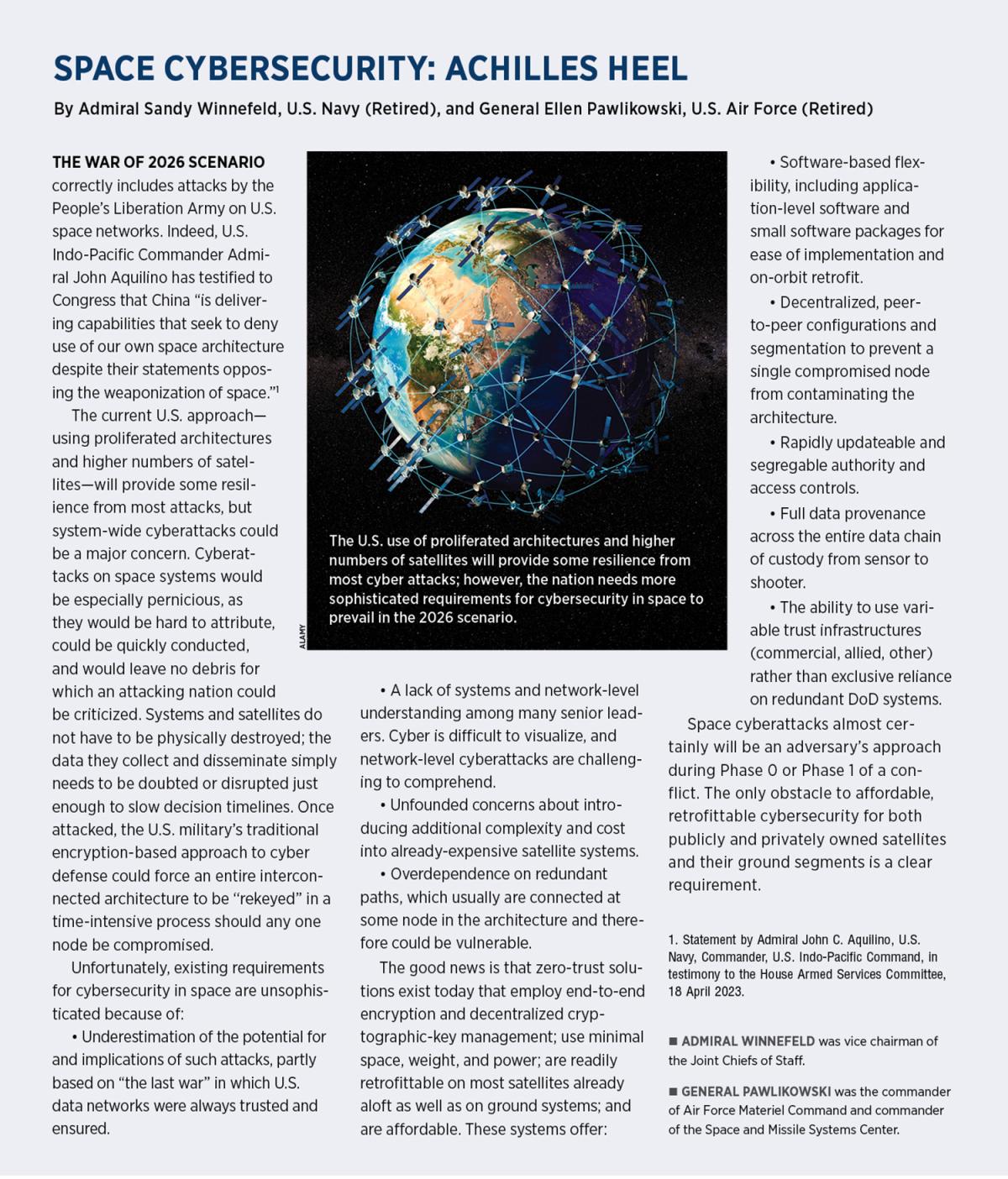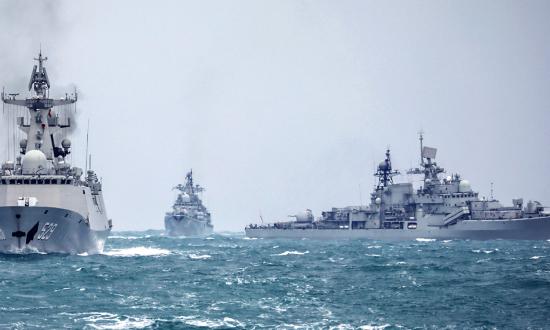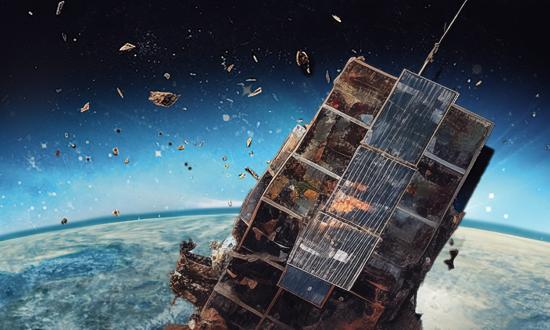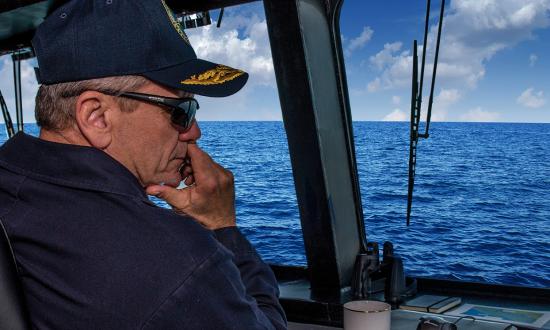Space Cybersecurity: Achilles Heel
Admiral James A. "Sandy" Winnefeld, U.S. Navy (Retired), graduated from the Georgia Institute of Technology with a degree in Aerospace Engineering and received his commission through the NROTC program. He began his naval service as a fighter pilot, flying the F-14 Tomcat during several deployments to the Western Pacific and Arabian Gulf regions, and serving as an instructor at the Navy Fighter Weapons School, also known as Topgun. During this period he also was senior aide to General Colin L. Powell.
After fighter squadron command, he graduated from the Navy’s nuclear power school and subsequently commanded USS Cleveland (LPD-7) and USS Enterprise (CVN-65). He also led the Theodore Roosevelt Carrier Strike Group while supporting operations in support of our troops in Iraq. Later he commanded NATO Joint Command Lisbon, Striking and Support Forces NATO, and the United States Sixth Fleet. After serving as the Joint Staff Director of Strategic Plans and Policy, he assumed command of United States Northern Command and the North American Aerospace Defense Command. He retired in 2015 after four years serving as the ninth Vice Chairman of the Joint Chiefs of Staff and the nation’s number two ranking military officer.
A frequently published author, Sandy currently serves as Distinguished Professor at the Sam Nunn School of International Affairs at Georgia Tech, where he is also a member of the Engineering Hall of Fame. He is a senior non-resident fellow at the Belfer Center for Science and International Affairs of the Kennedy School of Government at Harvard University. He also serves on several boards, including the U.S. Naval Institute and Raytheon Technologies, and in advisory positions in the business community.
General Pawlikowski was the commander of Air Force Materiel Command and commander of the Space and Missile Systems Center







